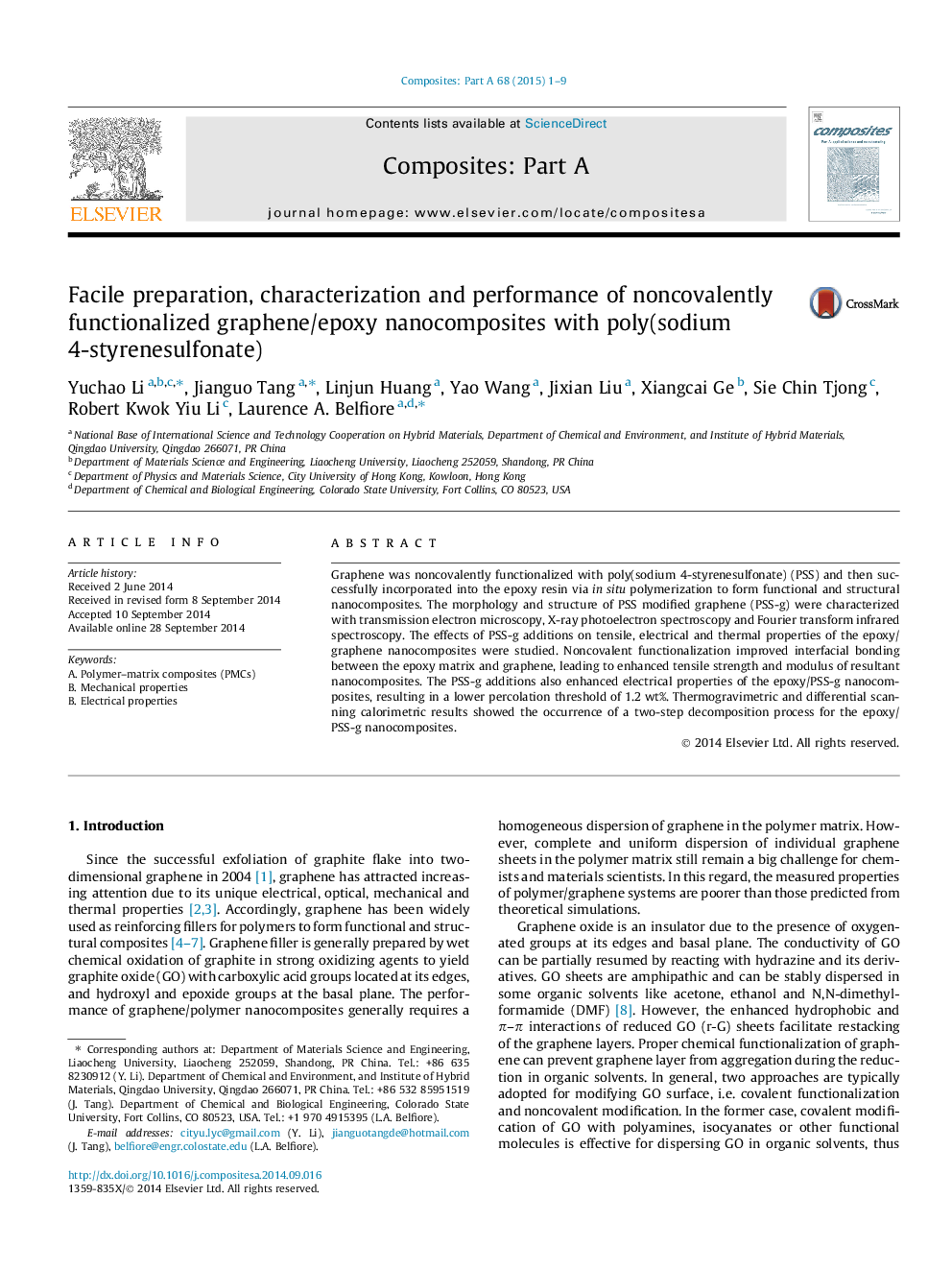| Article ID | Journal | Published Year | Pages | File Type |
|---|---|---|---|---|
| 7892056 | Composites Part A: Applied Science and Manufacturing | 2015 | 9 Pages |
Abstract
Graphene was noncovalently functionalized with poly(sodium 4-styrenesulfonate) (PSS) and then successfully incorporated into the epoxy resin via in situ polymerization to form functional and structural nanocomposites. The morphology and structure of PSS modified graphene (PSS-g) were characterized with transmission electron microscopy, X-ray photoelectron spectroscopy and Fourier transform infrared spectroscopy. The effects of PSS-g additions on tensile, electrical and thermal properties of the epoxy/graphene nanocomposites were studied. Noncovalent functionalization improved interfacial bonding between the epoxy matrix and graphene, leading to enhanced tensile strength and modulus of resultant nanocomposites. The PSS-g additions also enhanced electrical properties of the epoxy/PSS-g nanocomposites, resulting in a lower percolation threshold of 1.2Â wt%. Thermogravimetric and differential scanning calorimetric results showed the occurrence of a two-step decomposition process for the epoxy/PSS-g nanocomposites.
Related Topics
Physical Sciences and Engineering
Materials Science
Ceramics and Composites
Authors
Yuchao Li, Jianguo Tang, Linjun Huang, Yao Wang, Jixian Liu, Xiangcai Ge, Sie Chin Tjong, Robert Kwok Yiu Li, Laurence A. Belfiore,
